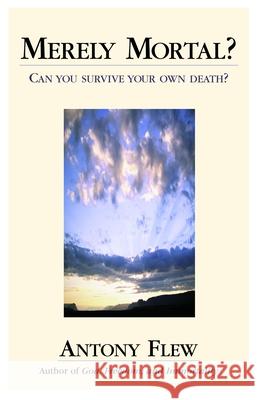Merely Mortal: Can You Survive Your Own » książka
Merely Mortal: Can You Survive Your Own
ISBN-13: 9781573928410 / Angielski / Twarda / 2001 / 200 str.
"Whether we are to live in a future state . . . is the most important question which can possibly be asked. . . . Yet strange perplexities have been raised about the meaning of that identity or sameness of person, which is implied in the notion of our being now and hereafter. . . ."
These words, written by the Anglican Bishop Joseph Butler, concisely summarize the crux of the problem which renowned philosopher Antony Flew tackles in this profoundly thoughtful book. Despite the perennial hope of life beyond the grave, Flew shows that there are insuperable difficulties in elucidating postmortem survival on a rational basis. He analyzes the three ways that philosophers of the past have attempted to get around these difficulties: the "reconstitutionist way" (miraculous reassembly of our deceased bodies at some future time, such as the Last Judgment); the "way of the astral body" (a sort of duplicate, undetectable "body," which detaches itself from the material body after death); and the "Platonic-Cartesian way"(an incorporeal mind or soul containing a person's identity which lives on after death). The main problem, says Flew, is the impossibility of logically demonstrating how a person surviving death in any imagined altered state could identify him- or herself as the same person who had previously lived a flesh-and-blood life on the Earth. Flew reviews both the classic arguments of Plato, Aristotle, Aquinas, and Descartes, as well as the modern findings of parapsychology, elucidating this complex issue with logical rigor and engaging wit.











